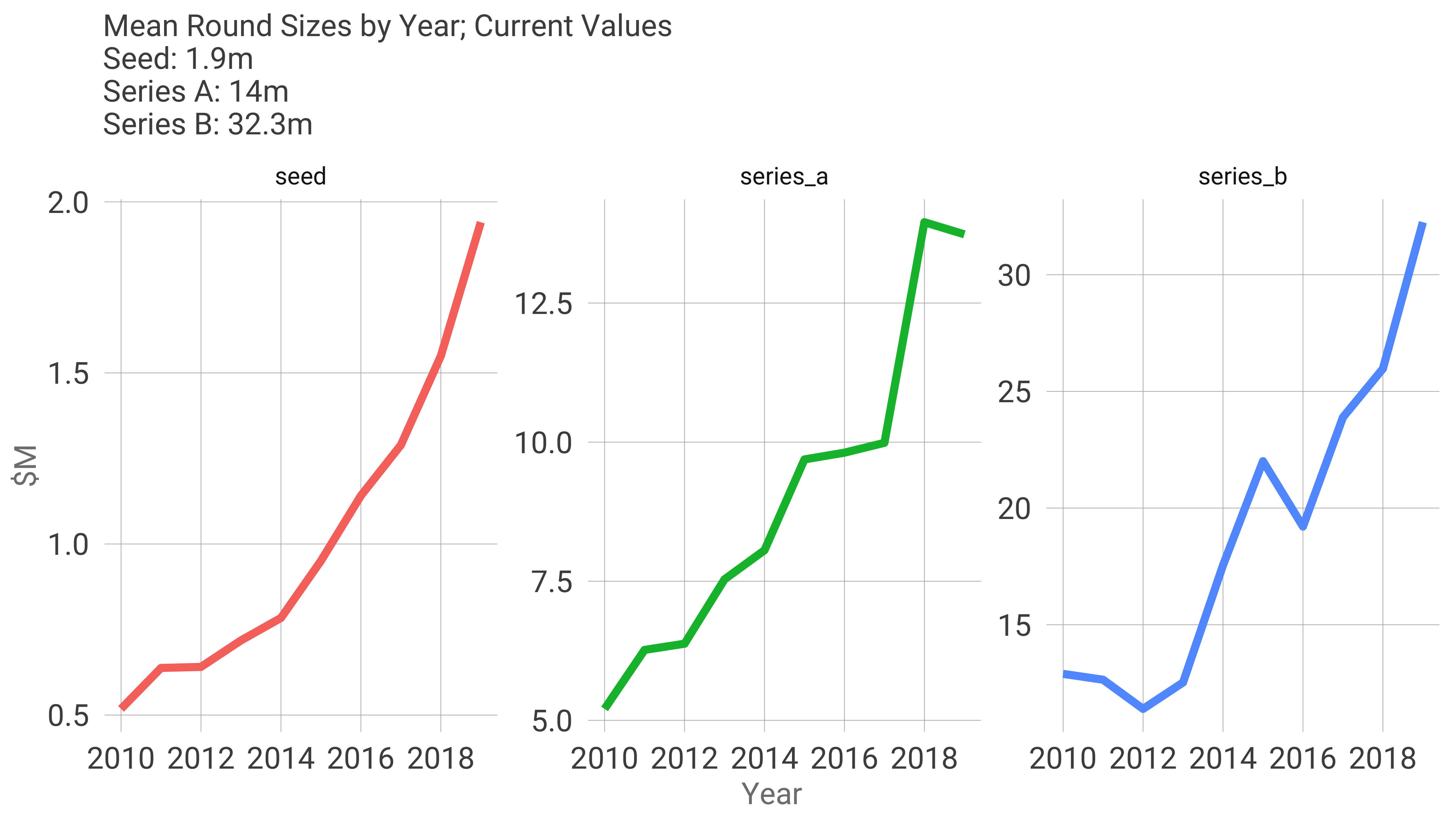 I’ve written before about the Jacob’s Ladder of Fundraising. The Jacob’s Ladder is a children’s toy that flips over, and it’s a great metaphor for the seed market. Seed rounds are rapidly approaching and now often equal to the sizes of Series As just five years ago. The chart above shows the mean round size in the US across.
I’ve written before about the Jacob’s Ladder of Fundraising. The Jacob’s Ladder is a children’s toy that flips over, and it’s a great metaphor for the seed market. Seed rounds are rapidly approaching and now often equal to the sizes of Series As just five years ago. The chart above shows the mean round size in the US across.
As the Jacob’s Ladder flips, a series of important strategic questions arise in the market.
For founders, the increase of seed rounds (and the proliferation of seed derivatives like pre/post/second seeds) are a boon. A greater diversity of financial products serve a broader set of founder needs. Wonderful.
It means now there are many more ways to reach $10M in ARR. $1M or $3M or $5M seed. $7M or $12M or $15M or $25M Series A. Mix and match the financial product to the company need at the time. This week we saw a $10M round at $800M in Notion.
If you’re a bottoms up, product driven, capital efficient business, that operates at a profit, a $2M seed for 10% of the business may be enough to reach that $20M Series A. If you prefer to build a business that consumes more capital either for ramping GTM or developing a more technical product, a $5M seed might be a better bet.
Competition amongst investors drives this this panoply of options in the seed market. Seed investors are moving up, with some raising bigger funds. Series A investors must choose to move earlier into the new seed rounds, or play later in bigger Series As (the Series Bs of yore).
The same dynamic is occuring at most stages of venture investing. And this means that the financial product that we call the Series Seed or Series A is meaningless; it’s just the header on the fundraising documents.
The previously fixed financial products that existed in 2008 of a $4-6M Series A and a $10-12M Series B are gone. Instead of these arbitrary discrete ranges, the market has evolved to provide a smooth continuum of fundraising options.
Competition has brought diversity and innovation into the private capital markets. And once again, it’s the founders who reap the benefits. Namely, much more diverse and varied financing options to suit the precise needs of a particular startup.
Which is the right fundraising product for your business? In this market, it’s choose your own adventure.